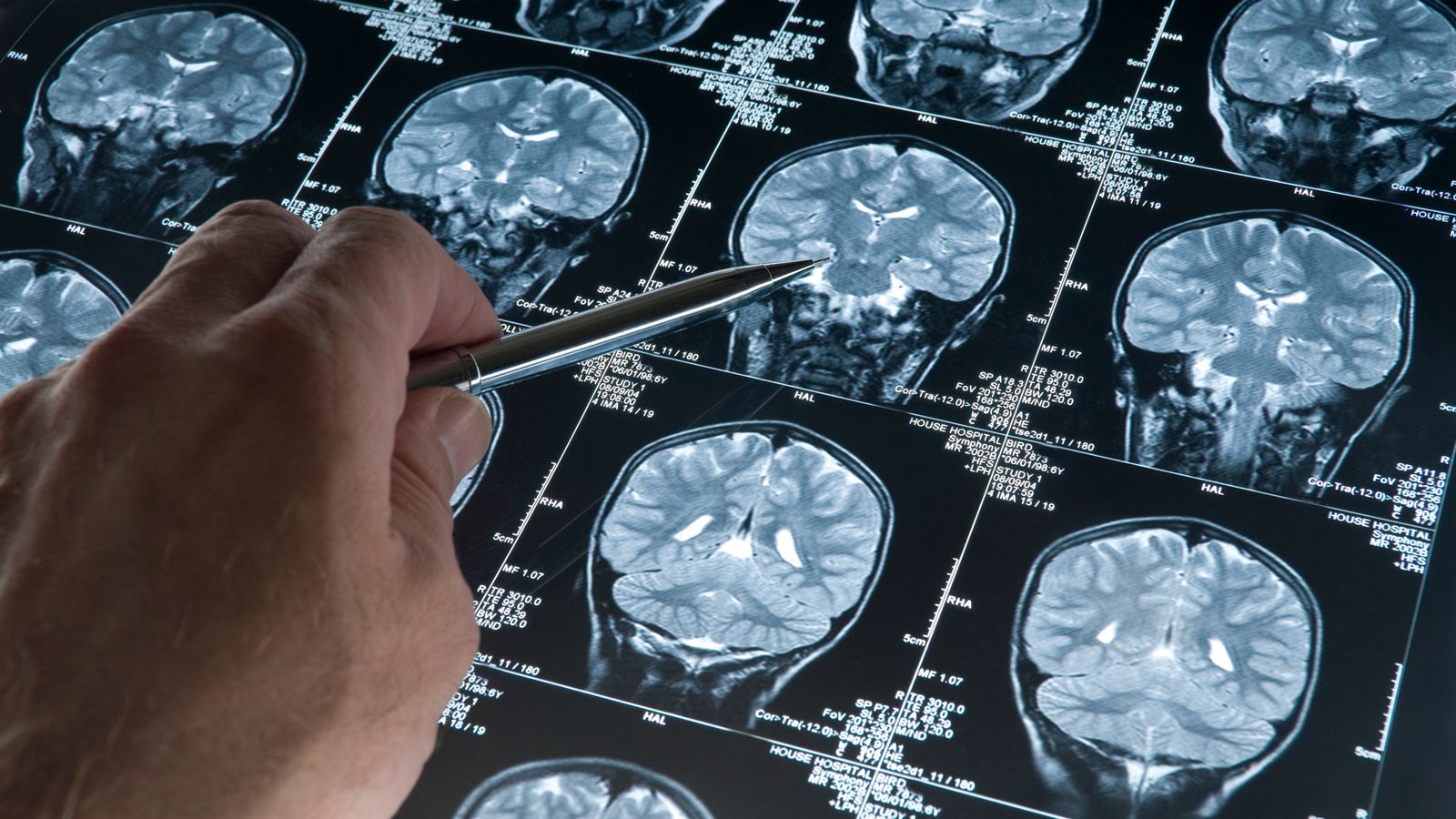People who have an unhealthy heart at the age of 36 could see their brain shrink earlier, new research has found.
A study by University College London (UCL) found poor cardiovascular health could lead to a higher brain age later in life.
Men tend to have older brains than women of the same age, the data showed.
Participants were all of a similar age – but there was a “very wide variation” in how old the computer model predicted their brains to be.
The research could be an important indicator for people at risk of cognitive decline or other brain related concerns.
Lead author of the study, Professor Jonathan Schott, UCL Dementia Research Centre, Queen Square Institute of Neurology, said: “We hope that this technique could one day be a useful tool for identifying people at risk of accelerated ageing, so that they may be offered early, targeted prevention strategies to improve their brain health.”
An established MRI based model was used to estimate the brain age of people who took part in the Insight 46 study, funded by charity Alzheimer’s Research UK.
Experts say it’s about how often you exercise, not how much
‘Important new step’ in finding treatment for motor neurone disease, scientists reveal
Monkeypox vaccines set to run out in UK with bookings in some areas already closing
Subjects took part throughout their entire lives – allowing scientists to cross reference their brain ages to various other factors.
The participants were all aged between 69 and 72 – but their brain age varied from 46 to 93.
People with worse cardiovascular health at the age of 36 or 69 had poorer brain health.
Dr Sarah Imarisio, head of research at Alzheimer’s Research UK, hailed the study for helping to develop greater understanding of the “complex relationship” between different factors which influence brain health.
“Using machine learning, researchers in this study have uncovered yet more evidence that poorer heart health in midlife is linked to greater brain shrinkage in later life.
“We are incredibly grateful to the dedicated group of individuals who have contributed to research their entire lives making this work possible.”
Read more:
Global dementia cases could triple by 2050
COVID increases risk of neurological conditions
The findings have been published in medical journal The Lancet Health Longevity.
Scientists earlier revealed how brain changes are linked to emotion in an “enigmatic condition” dubbed “broken heart syndrome”.
Medically known as Takotsubo syndrome, it is usually brought on by physical or emotional stress, such as the loss of a loved one – leading to a sudden form of acute heart failure which is estimated to affect around 5,000 people in the UK each year.






